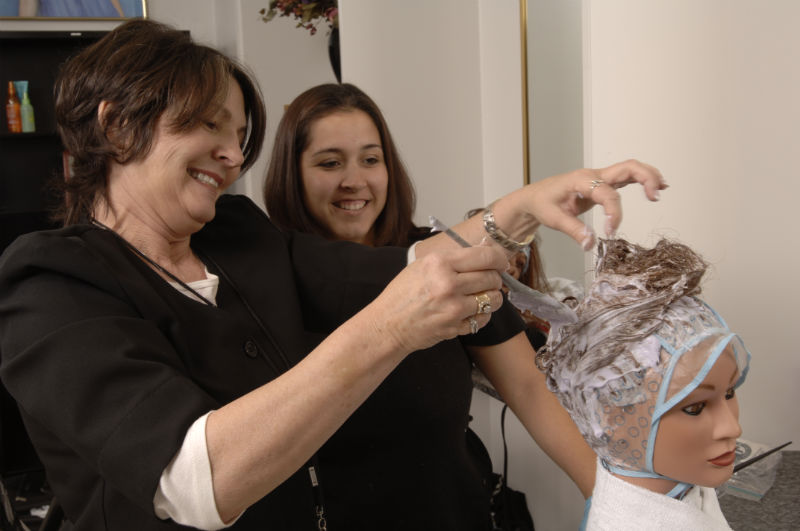High School Operator Certificate
The High School Operator Certificate covers of all areas of cosmetology, including hair, nails and skin.

The program prepares current high school students to pass the Texas Department of Licensing and Regulations examination for licensing. High school students typically begin in the fall semester of their junior year.
High school students must complete 1,000 clock hours before graduation from high school and successfully complete high school graduation requirements.
Certificate – High School Operator
Certificate Study Plan
Visit our online Academic Catalog or obtain a print copy of COM Catalog from the Office of Admissions and Records for detailed course descriptions and class prerequisites the High School Operator Certificate.
Gainful Employment Disclosure
College of the Mainland provides gainful employment information about graduation rates, the median debt of students and other important information to all interested persons regarding the College’s certificate programs.
View the disclosure template for the Cosmetology Operator Certificate

We learn braiding and updos. We had to learn the body to understand how the body works with chemicals if there was a reaction (to hair color). My favorite part is getting to work on clients (in the Salon at College of the Mainland).
Implementation of HB 1508
As required by Texas HB 1508, applicants and enrollees need to be aware that an individual who has been convicted of an offense may be ineligible for issuance of an occupational license upon completion of the educational program:
- Each licensing authority that may issue an occupational license to an individual who completes an educational program must establish guidelines which state the reasons a particular crime is considered to relate to a particular license and any other criterion that affects the decisions of the licensing authority;
- Local or county licensing authorities may issue additional guidelines related to criminal history. Applicants should contact their respective local or county licensing authority for more details.
- A person may request a criminal history evaluation letter regarding the personal eligibility for a license issued by a licensing authority under Texas Occupation Code 53.102.
Note: This does not apply to licenses granted by the law enforcement officers (Occupations Chapter 1701) or emergency medical services (Health and Safety Code Chapter 773).
Notice to Students Regarding Licensing
Effective September 1, 2017, HB 1508 amends the Texas Occupations Code Section 53 that requires education providers to notify potential or enrolled students that a criminal history may make them ineligible for an occupational license upon program completion.
Should you wish to request a review of the impact of criminal history on your potential High School Operator Certificate. prior to or during your quest for a degree, you can visit this link and request a “Criminal History Evaluation”: https://www.tdlr.texas.gov/crimHistoryEval.htm
This information is being provided to all persons who apply or enroll in the program, with notice of the requirements as described above, regardless of whether or not the person has been convicted of a criminal offense. Additionally, HB 1508 authorizes licensing agencies to require reimbursements when a student fails to receive the required notice.
